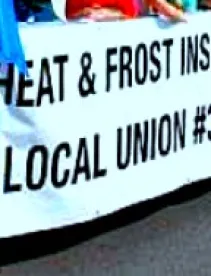On February 22, 2018, the U.S Sixth Circuit Court of Appeals determined a union acted properly when it continued collecting union dues from members who did not follow protocol when seeking to revoke consent to their signed dues checkoff authorizations.
Plaintiffs worked for a unionized grocery store in Michigan. The collective bargaining agreement between the employer and the union allowed the employer to deduct union dues from an employee’s paycheck if the employee signed a dues checkoff authorization form. The form provided that the dues checkoff authorization would be irrevocable for one year or until the termination date of the agreement, whichever occurred sooner, and thereafter for one-year periods unless revoked by certified mail during a 15-day window each year.
Plaintiffs signed the authorization forms. Three years later, they resigned their union memberships and sought to revoke their dues checkoff authorizations. However, Plaintiffs did not follow the revocation protocol; they sent their written revocations by regular mail, not certified mail, and did so outside the 15-day revocation period. The union refused to accept the revocations and the employer continued to deduct union dues from Plaintiffs’ wages, which the union continued to accept. Plaintiffs filed a putative class action against the union, alleging the union violated 1) section 302 of the Labor Management Relations Act (“LMRA”) by imposing conditions on their ability to revoke their dues checkoff authorizations and 2) its duty of fair representation under the National Labor Relations Act (“NLRA”) by enforcing said conditions. The district court dismissed the complaint as a matter of law, and the Sixth Circuit affirmed.
The Sixth Circuit quickly disposed of Plaintiffs’ LMRA claim. Specifically, section 302 of the LMRA does not contain an express private right of action. The Court further explained that section 302 does not contain an implied private right of action either because Congress when drafting section 302, did not “imply a right of action in ‘clear and unambiguous terms.’” Section 302 “does not create person-specific rights.” Rather, “it focuses on the persons regulated rather than the individuals protected.”
The Court also affirmed the dismissal of Plaintiffs’ NLRA claim, ruling that Plaintiffs failed to show the union’s conduct was “arbitrary, discriminatory, or in bad faith.” Specifically, Plaintiffs agreed to the 15-day revocation window and the certified mail requirement when they signed the dues checkoff authorization form. Having agreed to the requirements, Plaintiffs could not argue the union acted arbitrarily when enforcing those provisions. When “holding [Plaintiffs] to this contract, the union did not act in bad faith.”
This decision provides a timely reminder to unionized employers that deduct union dues from employees pursuant to dues checkoff authorizations to continue to deduct such dues until the employee properly revokes the checkoff authorization. Employers with questions regarding dues checkoff authorizations and dues deductions would do well to consult with counsel.




 />i
/>i

